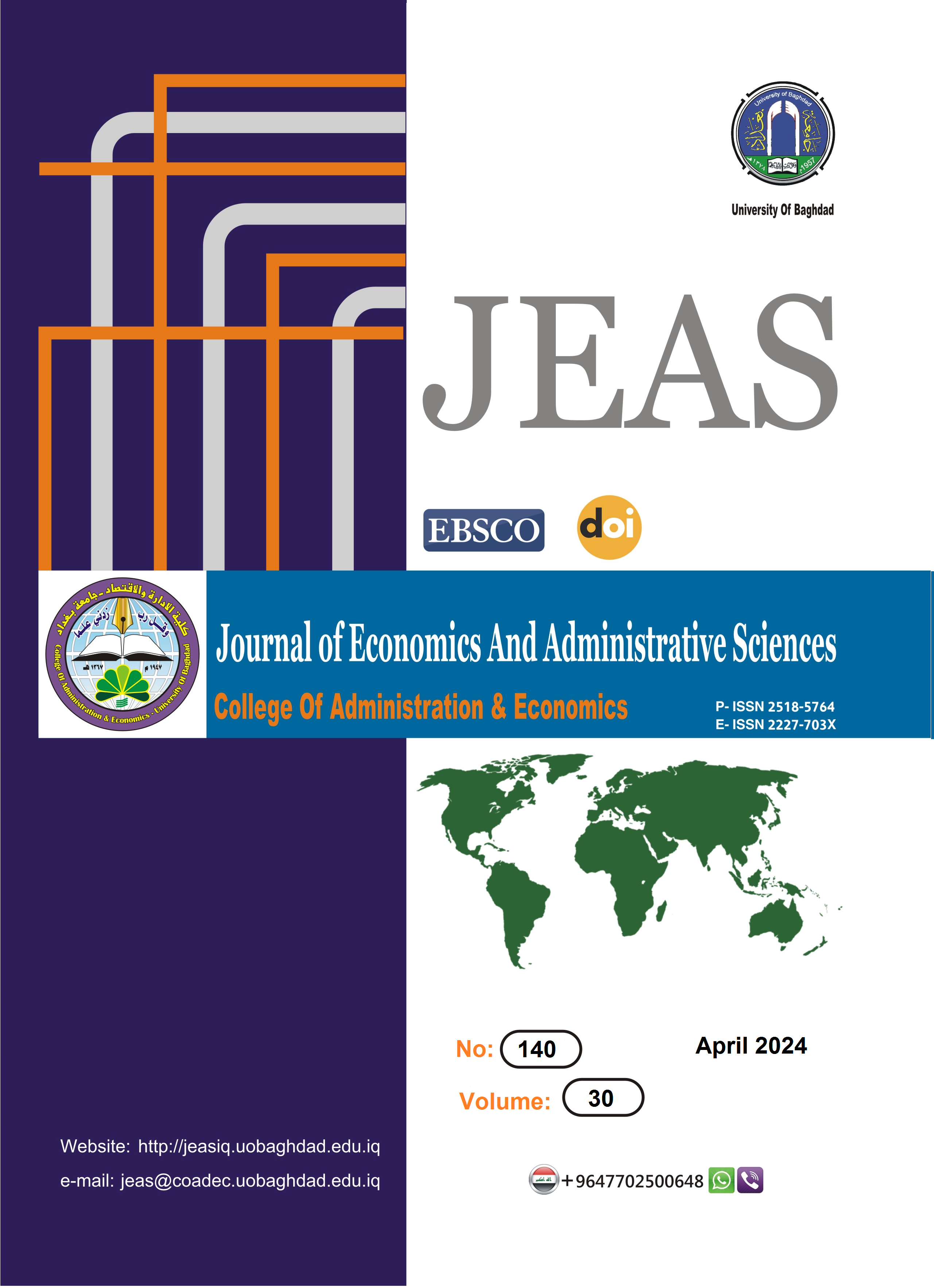The Influence of Credit Risk Using Derivative Financial Instruments on the Performance Commercial banks
DOI:
https://doi.org/10.33095/yrj09342Keywords:
Credit Risk, Derivative Financial Instruments (DFIs), Bank PerformanceAbstract
The research aims to reveal the influence of credit risks using Derivative Financial Instruments (DFIs) on the financial performance of commercial banks in Iraq. To achieve the research aim and test its main hypothesis, a questionnaire is distributed to listed commercial banks in the Iraq Stock Exchange and that apply DFIs. The researcher used the questionnaire as the main tool in collecting data. Financial data of the variables of the study are analysed by a simple regression method, the arithmetic mean(AM) and standard deviation. The study used the statistical program (SPSS ) to analyse the data. The research sample consisted of (70) questionnaire forms that were distributed and (68) valid forms were recovered. Research results show that using DFIs reduces exposure to interest rate risks, exchange rates and price fluctuations. The financial crisis is the result of the excessive use of financial derivatives outside regulatory restrictions and securitization to collect liquidity. Financial derivatives represent the fastest-growing form of financial transactions and continue to grow even in crisis conditions. DFIs help to identify risks associated with economic losses incurred by the economic unit as a result of weaknesses in the management and operation of derivatives contracts. Accounting profit-based performance indicators, such as return on assets, return on property rights, earnings per share and cash flows per share, contribute to the evaluation of performance, as well as the use of DFIs contribute to increasing profits. The study shows that credit risks using DFIs have a significant positive influence on performances financial in commercial banks in Iraq.
Paper type: Research paper.
Downloads
Published
Issue
Section
License
Copyright (c) 2024 Journal of Economics and Administrative Sciences

This work is licensed under a Creative Commons Attribution-NonCommercial-NoDerivatives 4.0 International License.
Articles submitted to the journal should not have been published before in their current or substantially similar form or be under consideration for publication with another journal. Please see JEAS originality guidelines for details. Use this in conjunction with the points below about references, before submission i.e. always attribute clearly using either indented text or quote marks as well as making use of the preferred Harvard style of formatting. Authors submitting articles for publication warrant that the work is not an infringement of any existing copyright and will indemnify the publisher against any breach of such warranty. For ease of dissemination and to ensure proper policing of use, papers and contributions become the legal copyright of the publisher unless otherwise agreed.
The editor may make use of Turtitin software for checking the originality of submissions received.

























